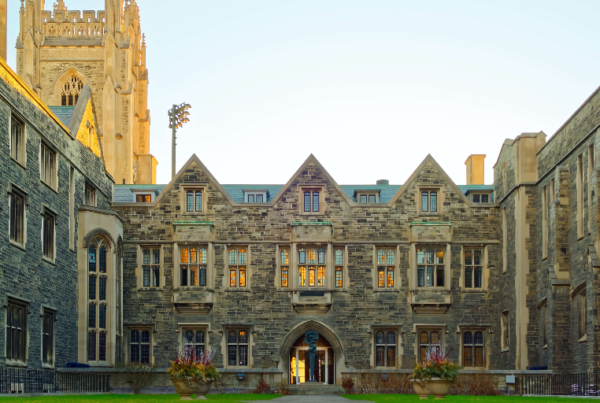I had been in missions for years working very sufficiently with my Bachelor’s degree and the ongoing learning I had experienced in the midst of varying mission contexts. While leading our mission’s candidate orientation program, I found myself engaged in discussions with applicants, some of whom held Master’s degrees. I didn’t always feel confident in my understanding of various delicate theological and missiological questions that arose. Although I had previously been encouraged to consider undertaking a Master’s level study program myself, I had wondered if having a Bachelor’s degree and years of mission experience wasn’t enough. Would all the work and cost of gaining a Master’s degree be worth it? I decided to begin the studies, but I wasn’t convinced they would be relevant to my work and have the value I hoped.
![]()
Almost immediately I found that I was being challenged academically, spiritually, and cross-culturally. The courses were valuable, and as a result, I was felt increasingly confident at being able to fulfill my role in evaluating and training new missionary candidates.
The Benefits of Getting Your Master’s Degree
For any would-be students of a Master’s Program, there are many good residential and online programs available. Among them is the program we have built here at Bethany Global University for workers ministering cross-culturally.
These courses seek to:
- Provide applicable, challenging studies integrating biblical, theological and cross-cultural content
- Provide spiritually transforming courses that challenge students to increase their understanding of God and His Word as well deepening their walk with, and love for, the Lord based on His teachings and acts in history
- Provide forums so that adult students may engage with others from a wide variety of nations, cultures, ministries and evangelical theological perspectives
- Provide a cost structure that is affordable for all, including students from developing nations

Missionary agencies constantly encourage their workers to be “lifelong learners.” This applies not just to the Bible or other knowledge, but to becoming a biblical leader and teacher. Knowing the Bible is not the same as being trained to apply text and theology in a variety of cross-cultural contexts. Bethany’s programs are designed for those interested in Intercultural Leadership, Intercultural Education, and Intercultural Studies.
For us, the bottom line is competence and transformation. One of our course designers, Dr. John Kayser, writes:
“Education should inherently be concerned with the question of competence. You and I, as teachers, are concerned with far more than merely pouring information into empty crania. We would like to see our students depart from campus, or study program (hopefully!!) with adequate spiritual, mental, interpersonal, emotional, and ministry competencies.”

One of our current students recently commented regarding a course assignment:
“I think it’s the first paper I have ever written that ‘wrote itself and everything I was reading and learning was interesting. Although the material wasn’t new to me, I had a superficial knowledge of my church’s history, theology and how and why it approached world missions (and partnerships) the way it does. Now I’m excited about taking what I learned and ensuring all our volunteers serving for a year or longer get some of this in their orientation. I think what I’m learning will help me relate even better to ordained elders when I attend meetings for pastors. Since about 1/2 the people in my department (those offering stateside support services for missionaries) are not from my denomination, I am confident it would help them in their work to know many of the things I learned when writing this paper. I plan to share bits and pieces of this in future “Free Talk Fridays,” when we gather for informal staff meetings. I really like this class; I wish I knew some of this years ago.”
—Deb Miller
For me personally, the Master’s degree meant increased confidence in a variety of theological and mission discussions. It also met a preferred status within my mission and later opened the door to a doctoral program while teaching at a university. I was also able to find a publisher for both my Master’s thesis and Doctoral dissertation which in turn opened the door to workshop and conference presentations in my areas of study and research.
Possibly you might have other reasons to consider a Master’s program including a visa or vocational requirement. If so perhaps you should consider the value one of the study programs BGU has to offer you.




